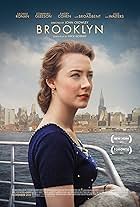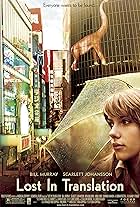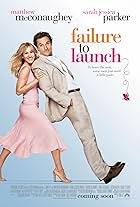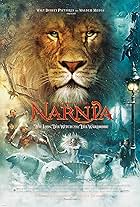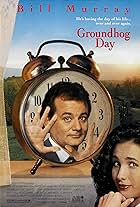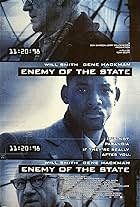Welcome to the new profile
We're still working on updating some profile features. To see the badges, ratings breakdowns, and polls for this profile, please go to the previous version.
Ratings98
segacs's rating
Reviews82
segacs's rating
I wanted to like this. I really did. Natalie Portman's directorial debut taking on an epic Amos Oz novel about his early life set against the tale of the birth of the State of Israel should have been wonderful. Instead, it felt like a series of beautiful cinematic vignettes that didn't quite come together to form a cohesive narrative. The dramatic tension is missing. The motivations of Oz and his mother and father are not explained. A couple of political scenes inserted to give some context -- namely the scene with the Arab girl and her brother, and the scene where the UN vote is being read out -- feel clunky and not well linked to the more personal story being told. If I hadn't come into the movie already having a good grasp of the history of mandatory Palestine and Israel's early years, I feel I would have been totally lost, as so much was glossed over or not really explored. Moreover, the most interesting parts to me were those that explored Amos's relationship with his father, but Portman chose to focus the narrative on his enigmatic, struggling mother -- someone you get the sense that the boy himself never really understood. There are a lot of wonderful scenes here, but they don't really go anywhere. Haval.
I saw this at Fantasia Festival here in Montreal. It was billed as a "warning cry against the excesses of censorship and a thrilling, high-powered action film." Well, it did a fairly decent job at the latter, but sort of fell down on the former.
I think Library Wars couldn't quite decide whether to be a light-hearted romantic comedy or an action movie with a cool urban backdrop. It attempted both, at times fairly well, interspersing shoot-em-up military action scenes and martial arts against a classic tale of a slightly inept heroine looking for her prince charming. There were plenty of funny moments in the romantic plot line, and the action sequences started slow but the pace picked up in the second half. So the movie, overall, was entertaining enough.
The thing is, entertaining doesn't necessarily mean smart. The whole premise of the movie didn't really stand up to much scrutiny. You had two ostensibly legal government forces fighting one another using military force, which was a bit of a head-scratcher. The dialogue and script were -- even allowing for a poor translation -- pretty cheesy. And for a movie supposedly set in a near-future in an alternate reality, there was next to no attention paid to world-building.
Most problematically, the movie claimed the turf of an important, highly relevant issue -- censorship -- and then relegated it to little more than a MacGuffin. After establishing the Library Defence Force as the good guys and the Media Betterment Committee as the bad guys, you basically have an old-fashioned western with white hats and black hats, and the issue they're fighting for is never explored or delved into in any way beyond that setup. They could have been fighting to protect anything and the plot would have been exactly the same. We never get the sense that books or the thoughts they contain matter to the storyline or to the message of the film.
Library Wars is based on a book, which I haven't read but can only assume spent more time developing some of these premises. As for the film, it was good for a few laughs, some charming (if exaggerated) comedic acting, and a few good action sequences. I could easily envision it being turned into a video game, with a female main character battling bad guys through library stacks.
But the film never quite rises to its subject matter. The issue of censorship has perhaps never been more topical, relevant or critical, and Library Wars doesn't really seem to have anything of importance to say about it, which is disappointing considering all that it could have been.
I think Library Wars couldn't quite decide whether to be a light-hearted romantic comedy or an action movie with a cool urban backdrop. It attempted both, at times fairly well, interspersing shoot-em-up military action scenes and martial arts against a classic tale of a slightly inept heroine looking for her prince charming. There were plenty of funny moments in the romantic plot line, and the action sequences started slow but the pace picked up in the second half. So the movie, overall, was entertaining enough.
The thing is, entertaining doesn't necessarily mean smart. The whole premise of the movie didn't really stand up to much scrutiny. You had two ostensibly legal government forces fighting one another using military force, which was a bit of a head-scratcher. The dialogue and script were -- even allowing for a poor translation -- pretty cheesy. And for a movie supposedly set in a near-future in an alternate reality, there was next to no attention paid to world-building.
Most problematically, the movie claimed the turf of an important, highly relevant issue -- censorship -- and then relegated it to little more than a MacGuffin. After establishing the Library Defence Force as the good guys and the Media Betterment Committee as the bad guys, you basically have an old-fashioned western with white hats and black hats, and the issue they're fighting for is never explored or delved into in any way beyond that setup. They could have been fighting to protect anything and the plot would have been exactly the same. We never get the sense that books or the thoughts they contain matter to the storyline or to the message of the film.
Library Wars is based on a book, which I haven't read but can only assume spent more time developing some of these premises. As for the film, it was good for a few laughs, some charming (if exaggerated) comedic acting, and a few good action sequences. I could easily envision it being turned into a video game, with a female main character battling bad guys through library stacks.
But the film never quite rises to its subject matter. The issue of censorship has perhaps never been more topical, relevant or critical, and Library Wars doesn't really seem to have anything of importance to say about it, which is disappointing considering all that it could have been.
